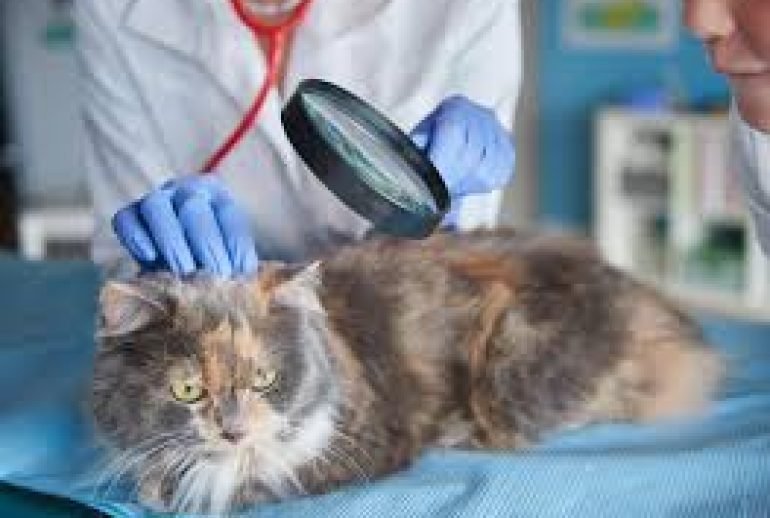Flea treatment for kittens is an essential aspect of ensuring your young feline companions are healthy and comfortable. Kittens are particularly vulnerable to flea infestations, which can lead to a range of health issues, including anemia, skin irritations, and allergic reactions. In this article, we will explore the safest and most effective options for flea treatment for kittens, guiding you through various methods to protect your furry friends.

Understanding Fleas and Their Impact on Kittens
Before diving into the treatment options, it’s crucial to understand why flea infestations can be especially problematic for kittens. Fleas are small, parasitic insects that feed on the blood of animals. When a kitten is infested with fleas, it can suffer from excessive scratching, biting, and excessive grooming. This can lead to skin irritations and infections, which are particularly concerning for young, developing kittens.
Health Risks Associated with Fleas
- Anemia: Kittens are small and have limited blood volume. A severe flea infestation can lead to significant blood loss, resulting in anemia.
- Allergies: Some kittens may develop flea allergy dermatitis, which causes severe itching and skin lesions.
- Tapeworms: Fleas can carry tapeworm eggs, and if a kitten ingests an infected flea while grooming, it can contract tapeworms.
Given these risks, it’s essential to take proactive measures and choose the right flea treatment for kittens.
Safest Options for Flea Treatment for Kittens
1. Topical Treatments
Topical flea treatments are popular because they are easy to apply and can be very effective. These treatments typically come in a liquid form that you apply directly to your kitten’s skin, usually between the shoulder blades.
- Seresto Flea and Tick Collar: Although more suited for older kittens, this collar provides long-lasting protection against fleas and ticks without the need for monthly treatments.
- Frontline Plus: This is a topical treatment that is effective against fleas and ticks. It can be safely used on kittens over eight weeks old.
When using topical treatments, ensure to follow the manufacturer’s instructions carefully. Avoid using products that are meant for adult cats or dogs, as they can be toxic to younger animals.
2. Oral Medications
Oral flea medications are another effective option, especially for kittens that may not tolerate topical treatments well. These medications work systemically to kill fleas when they bite.
- Capstar (Nitenpyram): This fast-acting oral treatment begins killing fleas within 30 minutes and is safe for kittens over four weeks old. However, it only provides short-term protection, so it should be used in conjunction with a longer-term prevention strategy.
Consult your veterinarian before administering any oral flea treatment, as they can recommend the best product suited for your kitten’s age and weight.
3. Flea Shampoos
Flea shampoos are a safe and effective way to treat flea infestations in kittens. They work by killing fleas on contact and can provide quick relief from itching and discomfort.
- Adams Plus Flea and Tick Shampoo: This shampoo is effective against fleas, ticks, and lice and is safe for use on kittens older than 12 weeks. It also contains aloe and oatmeal to soothe the skin.
When using flea shampoo, always follow the instructions carefully and ensure that you rinse your kitten thoroughly to prevent any residue.
4. Natural Remedies
If you prefer a more holistic approach, there are natural flea treatments available. While these may not kill fleas as effectively as chemical treatments, they can be used as complementary methods.
- Diatomaceous Earth: This natural powder can be sprinkled in areas where your kitten sleeps or plays. It works by dehydrating fleas and their eggs, effectively helping control infestations. Use food-grade diatomaceous earth for safety.
- Apple Cider Vinegar: Mixing equal parts of water and apple cider vinegar and spraying it on your kitten’s fur can help repel fleas due to its strong scent. However, avoid getting it in their eyes and use it as a preventive measure rather than a treatment.
Always consult your veterinarian before trying natural remedies, especially on young animals.

Preventing Flea Infestations
Prevention is often the best strategy for dealing with fleas. Here are several tips to help keep your kitten flea-free:
- Regular Cleaning: Vacuum your home frequently, especially areas where your kitten spends time. Wash bedding and blankets in hot water to eliminate flea eggs and larvae.
- Flea Control for Other Pets: If you have other pets, ensure they are also treated for fleas. Fleas can easily jump from one animal to another.
- Limit Outdoor Exposure: While it’s essential for kittens to explore, try to limit their exposure to areas known for high flea populations, such as grassy or wooded areas.
When to Consult a Veterinarian
If you notice that your kitten has a flea infestation or shows signs of discomfort, it’s crucial to consult your veterinarian as soon as possible. They can recommend an appropriate flea treatment for kittens based on your pet’s age, weight, and health status.
Signs that indicate a visit to the veterinarian is necessary include:
- Intense scratching or biting at the skin
- Red or inflamed skin
- Signs of anemia (pale gums or lethargy)
- Frequent grooming behavior
Conclusion
In summary, flea treatment for kittens is an essential responsibility for cat owners. Understanding the various options available, including topical treatments, oral medications, shampoos, and natural remedies, will help you choose the best approach for your furry friend. By taking proactive measures and seeking timely veterinary advice, you can ensure that your kitten remains healthy and happy, free from the discomfort of fleas.


